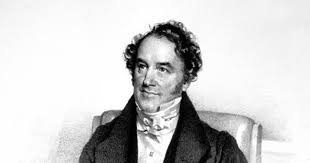
Conradin Kreutzer: A Complete Biography
Conradin Kreutzer (also spelled Kreuzer), born on November 22, 1780, was a prominent German composer, conductor, and operatic figure in the early 19th century. Best[…]

The 5 Best Compositions by Conradin Kreutzer
Conradin Kreutzer (1780–1849) was a German composer and conductor renowned for his operas, lieder, and instrumental music. While not as widely known today, Kreutzer was[…]

Conradin Kreutzer – Biography and Life
Conradin Kreutzer was a prominent composer and conductor of the Romantic era, born on November 22, 1780, in Messkirch, Germany. His musical talents were evident[…]